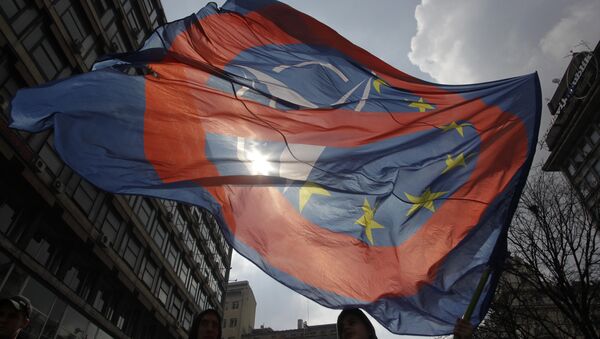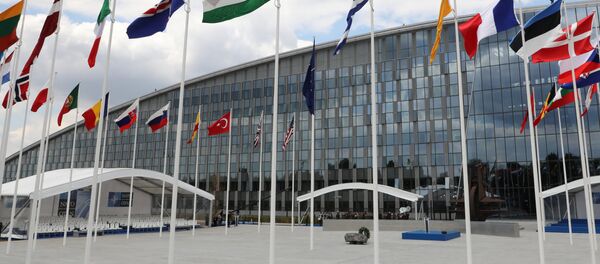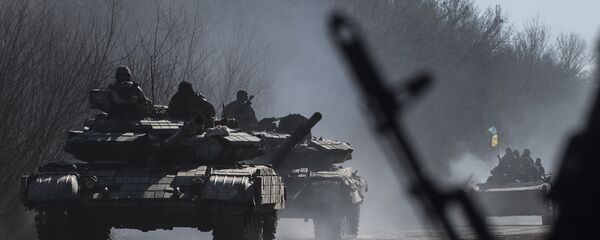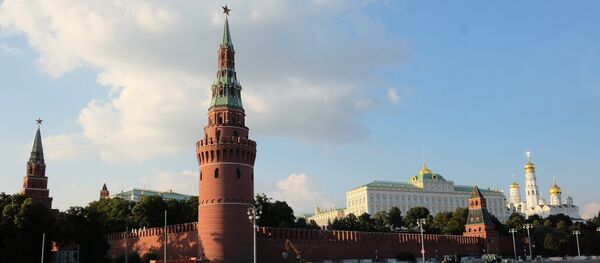On Wednesday, Scholz, Jiri Mastalka, the member of the European Parliament from the Czech Republic, and EU lawmaker from Latvia Miroslavs Mitrofanovs organized a roundtable atn the European Parliament, aimed at making the sides to the conflict in Ukraine’s eastern Donbas region overcome their differences and approaching the crisis resolution. The meeting included representatives of Russia, Ukraine and the Organization for Security and Cooperation in Europe (OSCE).
"The EU cannot let NATO decide for its policy in Central Europe. We need tools to make progress on the Minsk 2 agreement. It is the only one we have. I am sure the timetables as seen by Ukraine and the Donbass separatists can be reconciled with the help of Russia and the EU. We cannot put all the blame [on] one party alone. We must be careful to keep the trust of all protagonists. We need an open and transparent discussion. We had it today. I am sure all participants will agree. [It is] up to us to persuade more colleagues to join," Scholz said at the end of the meeting in Brussels on Wednesday.
"There is the genuine question of it is possible for Kiev to control its state borders … Ukraine should not be a buffer zone for NATO, we do not want direct military confrontation with the Russian Federation. Finally, we can reach out, and create an atmosphere in Europe to contribute to solving the situation," Scholz suggested.
The conflict erupted in 2014 after Donbass residents refused to recognize the central government which came to power in Kiev, prompting the central authorities to launch an offensive in the region. The conflict has claimed lives of over 10,000 people and is still ongoing. Measures to end the conflict included the 2015 agreements on the ceasefire between the Ukrainian warring parties, signed in the Belarusian capital of Minsk. Despite the deal, violations both on the part of Kiev forces and local militia have been reported since then.
READ MORE: Donbass: From Assassination to Invasion?
The western states, including the European Union and the United States, have accused Russia of involvement in the Ukrainian crisis. Notably, Brussels introduced sanctions against Moscow making the restrictions relief conditional on the implementation of the Minsk accords. Moscow, in its turn, has denied any meddling in the situation, saying it was not the party to the conflict and calling for the implementation of the Minsk accords by Kiev.
"I believe that Minsk 2 is the basis. Any revision of Minsk 2 will lead to the dismantlement of any basis for the resolution of the conflict … If the revision of Minsk 2 began this would destroy all the legal basis," Pushkov said.
The Russian parliamentarian recalled that the Minsk 2 accords have been reached after difficult 16-hour talks. The lawmaker underlined that the accords should be preserved until the conditions for their implementation are formed.
"[The accords] will play the strategic role in this sense," Pushkov added. Pushkov told Sputnik after the roundtable on the Ukrainian crisis that the effective solution of the conflict in the Donbass region would not be found "in a fortnight," noting that Ukraine needed to go through presidential and parliamentary elections in 2019.
"As I said, I personally plead for a freeze of Minsk 2, knowing that we don’t have any other legal tool to work with, but there are so many examples of cases where international law is not respected and has not been for decades around the planet. The key is that nobody dies, nobody suffers any more. The two sides can disagree but talk while humanitarian efforts are efficiently deployed to care for the suffering populations. If they don’t want to call it a freeze, fine with me," the lawmaker added.
READ MORE: Russia Steadfast on Remaining Guarantor of Minsk Accords on Eastern Ukraine
In turn, Jiri Mastalka told Sputnik that the parties to the Ukrainian crisis should first ensure a lasting ceasefire in eastern Ukraine and only then proceed with the legal dimension of the conflict's resolution.
He also welcomed the initiative of Alexei Pushkov to "regularize" the situation in Donbass by withdrawing heavy weapons from the area and separating forces in order to ensure the situation's normalization and the safety of local residents.
"I am moderately optimistic about the results of our initiative. I really hope that the Commission and/or the high representative teams will attend our next round table and participate to the debate. I liked very much the practical approach of Mr. Pushkov," Mastalka indicated.




